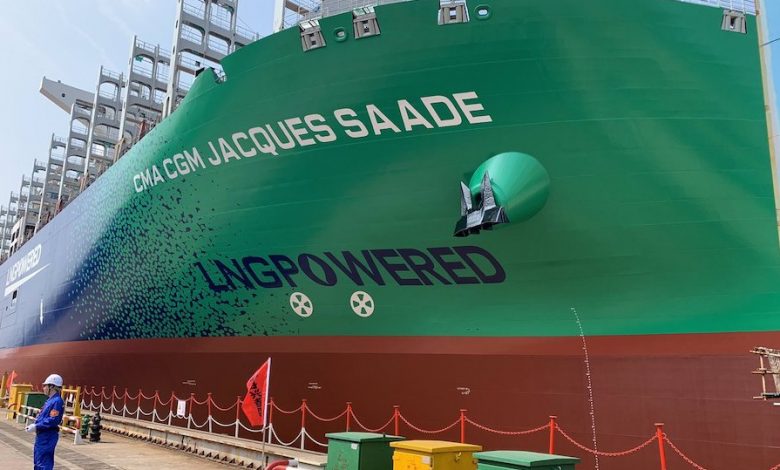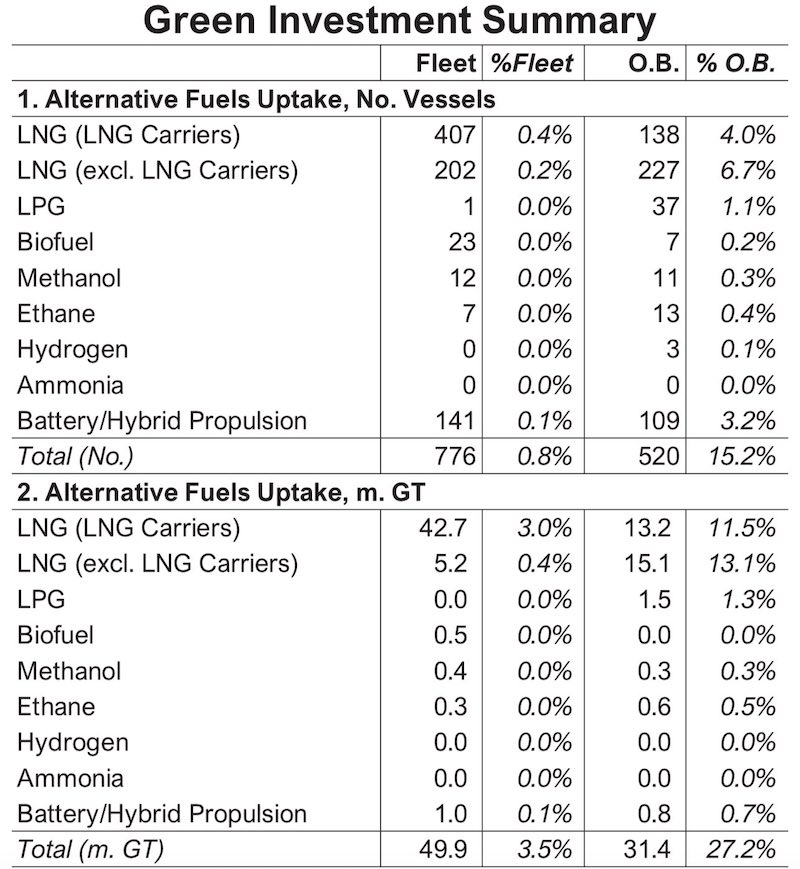More than a quarter of all tonnage under construction will use alternative fuels

Clarkson Research Services has provided its subscribers with a snapshot of the amount of ships – both trading today and under construction – which do not use bunker fuel. Remarkably, in tonnage terms more than a quarter of all ships being built today do not use bunker fuel oil for propulsion, according to the new research.
“Alternative fuels are gaining traction,” commented Stephen Gordon, managing director of Clarkson Research Services, writing in the company’s latest weekly report.
Clarkson data shows that alternative fuels are now in use on 3.5% of the current fleet and 27% of the orderbook by tonnage (see table below). By some considerable distance, LNG is the most popular alternative fuel at the moment, followed by LPG, but there are increasing numbers of alternately fuelled ships under construction such as 13 ethane-powered vessels.
“LNG’s case as a legitimate ‘stepping stone’ to meet emissions targets is supported by port facility investment,” Gordon wrote.
Clarksons now records 124 ports with LNG bunkering facilities, up from 114 at the start of the year and forecasts this will increase to 170 by 2022. Clarksons also projects that the LNG bunkering fleet will double in size in the next two years.


It makes sense for LNG/LPG carriers to use the fuel commodity they are carrying as propulsion fuel. For other applications (containers) this option is less clear. Widespread departure from fuel oil implies the need for production, storage, logistics, distribution and loading to vessels. All new investment. Who pays for this?